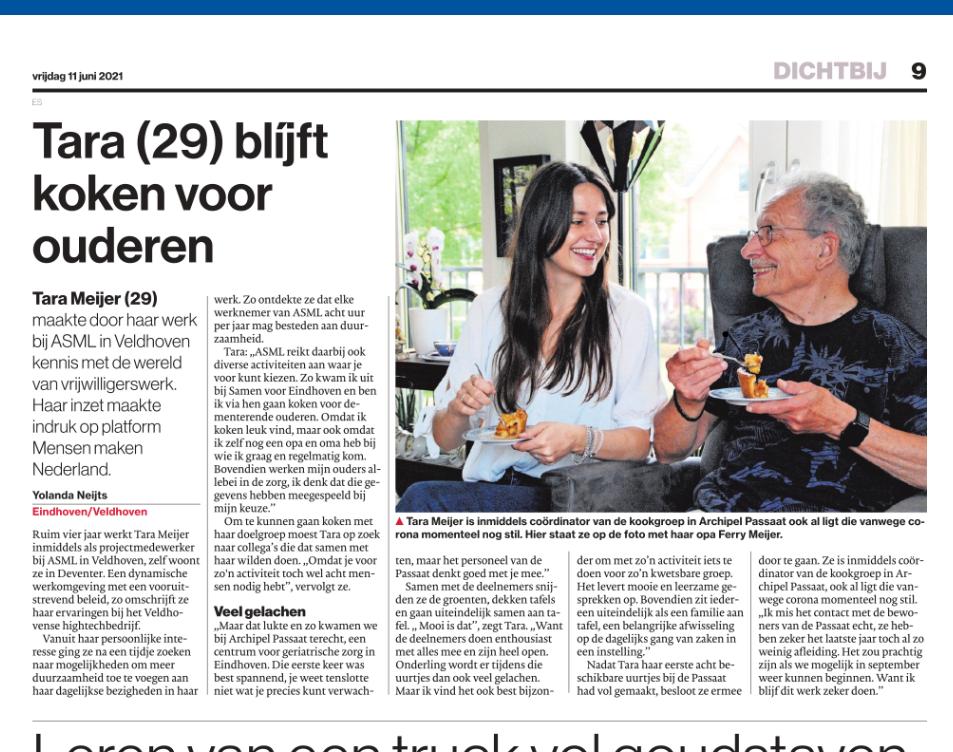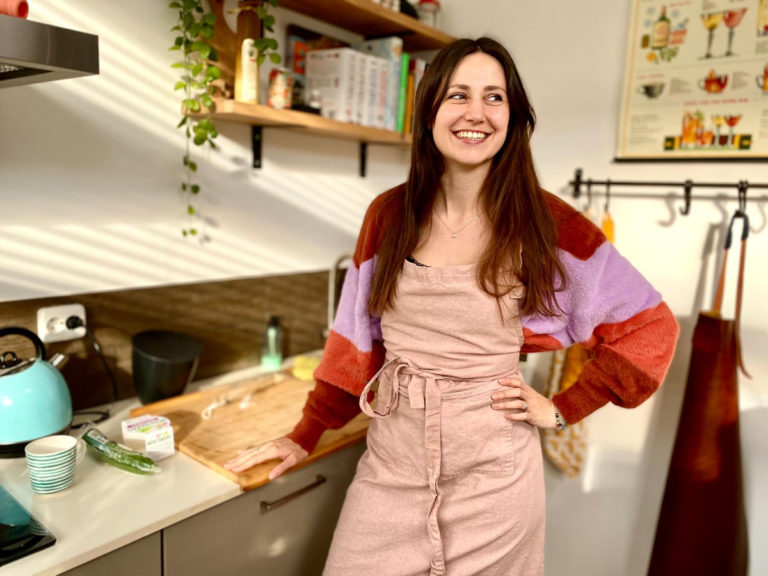
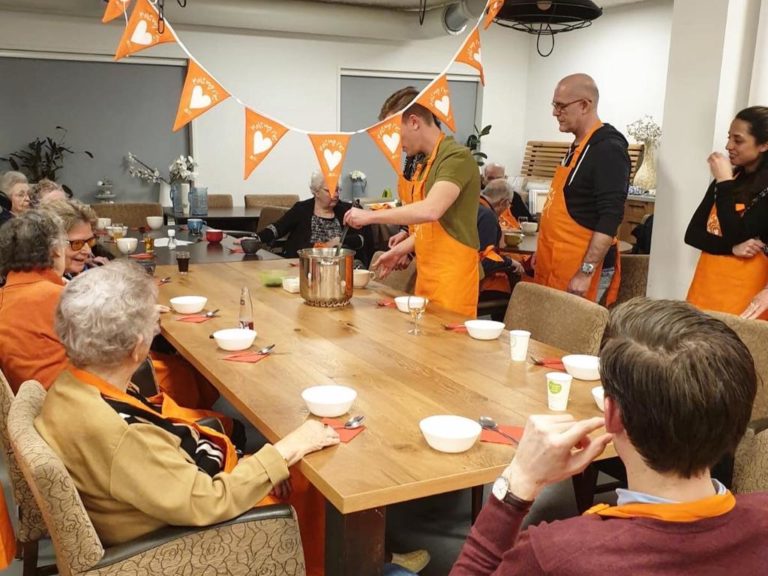
Tara (29) from ASML about the impact of doing good
What was supposed to be a one-off voluntary activity by ASML became a structural commitment. Tara Meijer, aged 29, works with thousands of colleagues on the machinery behind our microchips. On top of that, she dedicates herself to demented elderly people at Archipel in Eindhoven. A perfect balance, she thinks.
ASML makes the microchips that are in our devices. Tara is one of the people who, together with the regional teams, ensure that these devices can be used in the field. "Very nice and challenging work, I have a lot of contact with people abroad and therefore I work from home. In my job, I am involved in project and budget management, among other things, where I can use all the knowledge I have learned in both my studies." However, two years back Tara came to the conclusion that she was missing one thing.
Positively surprised
During her studies, she became acquainted with sustainable developments in the business world with regard to people and the environment. "In my job I don't have to deal with that and so I started looking around me. I found out that ASML employees are allowed to put in no less than eight volunteer hours (via Samen voor Eindhoven) for a project of their choice." Out of all the projects, she chose cooking with the elderly in a local care home: Archipel Hof van Strijp. "Both my parents work in care, so I had something to do with that target group. I also have grandparents myself and I would like them to have fun things to do when they are in a care home later on."
The first time she and her colleagues went cooking with the elderly, she found it quite exciting. "You don't know what to expect and to what extent you can talk to the clients. How do you deal with them, I wondered? I was therefore positively surprised by how much fun I had had."
From cooking to coordinating
That it is more fun than expected, she also sees in other groups of employees. They come from her own company, but also from other companies in the area. Since Tara was there every month anyway, she thought she might as well take on the role of coordinator. "At the time, they were also looking for a project coordinator for the cookery project in the care home, so I ended up in that role. I like it very much. I live in Deventer myself now, but I have to go to the office several times a month anyway, so I can do the coordinating as well. Cooking is between five and eight o'clock in the evening, so that fits in nicely after work.
The groups she receives are employees in all kinds of sectors. Tara feels that the business world is often far removed from healthcare and therefore welcomes employees coming to cook. "The people who come often find it a bit exciting at first, just like me the first time. But as they cook and eat, you see that everyone enjoys it and I also think that the helpers gain respect for people who work in care. It's a good development, because we can all suddenly need care, now or later." Through Tara's role as coordinator, the various departments at the care home are assured of volunteers through this relay match and the group that comes to help has a smoothly running evening.
Reality check
In any case, the cooking project has brought a lot to Tara herself. Before she came into contact with it through her work, she had never done any voluntary work before. "Apart from the fact that I really enjoy doing it, it also gives me a reality check every time. I see couples who are together in a care home and elderly people who are there without their partners. You see love, but also loneliness. It does make me emotional sometimes to see what the effects of Alzheimer's are."
Thousands of people work in Tara's company and they all get the chance to put in volunteer hours. Added up, it's a lot of hours committed to projects that are worth investing time in. "It's like an evening meal with a big family: conviviality, great conversations and it makes you feel good."
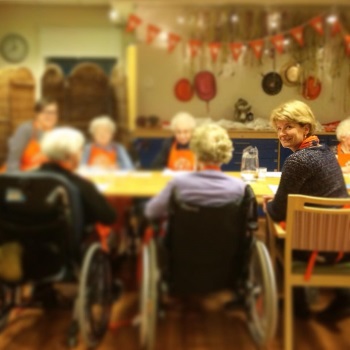
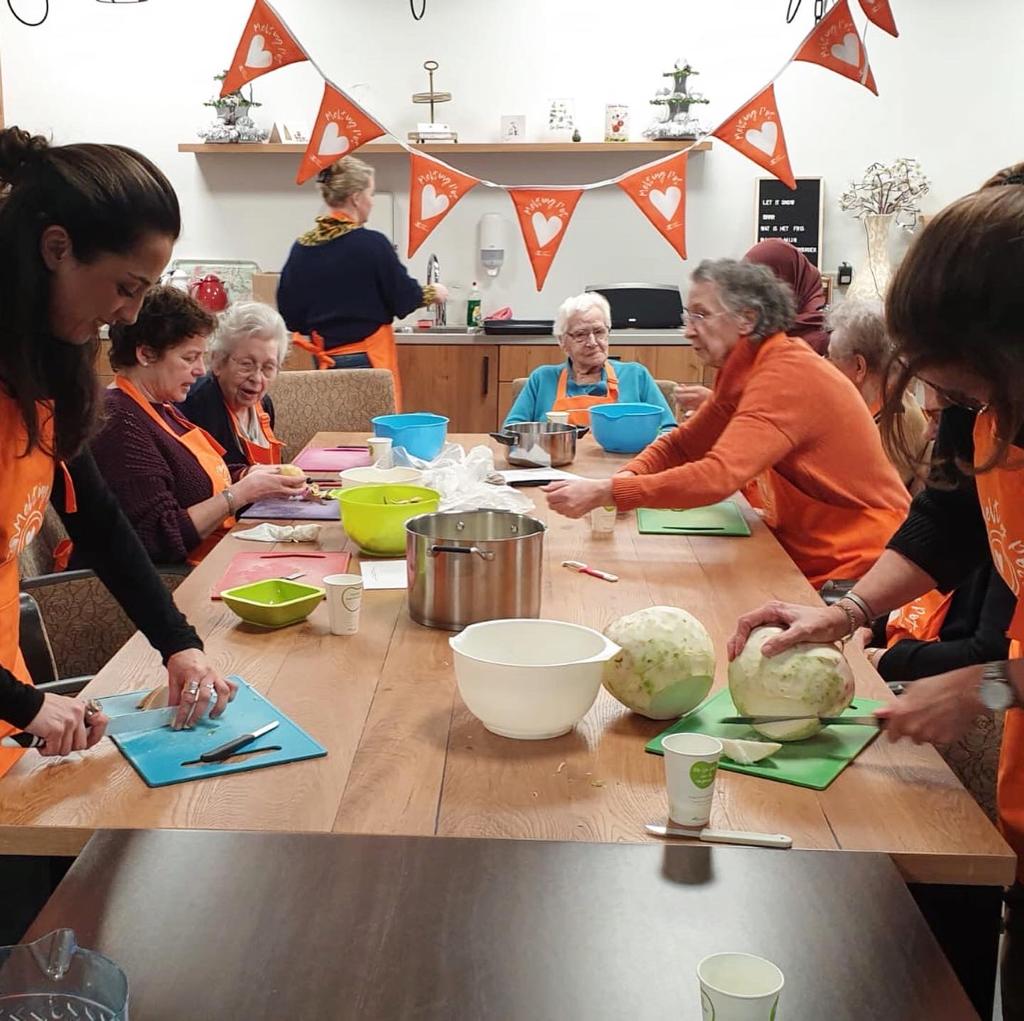
Vegetable soup to shakshuka
In the kitchen of Archipel Hof van Strijp people joke, laugh, chat and of course cook. "You can see that people enjoy working in the kitchen. Most of them have cooked their whole lives and hardly ever do so now. They make everything from vegetable soup to shakshuka." When a group comes, the residents help cut and stir. When Tara has her hands free and puts on an apron, she often gets tips. "Then someone comes and tells me how to peel the potatoes more conveniently, for example." And if the cutting board is empty and a new leek needs to be brought in, the residents will let you know. "It's just a friendly atmosphere.
Through their efforts, the volunteer groups bring an evening that would otherwise not be there. "Valuable for the elderly and the volunteers themselves." And if a resident really doesn't like a meal? "Then we just shove a back-up meal in the microwave!"

